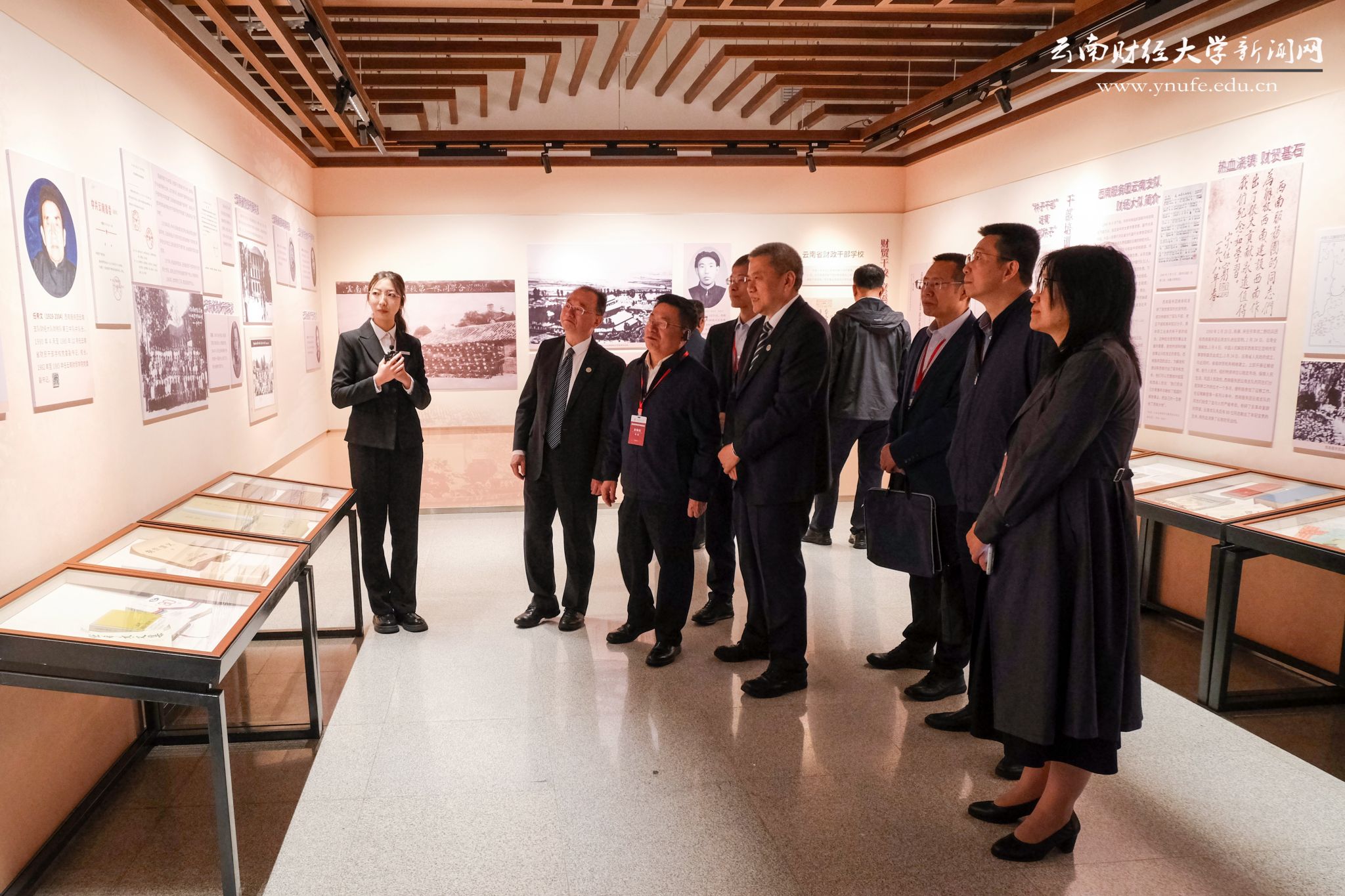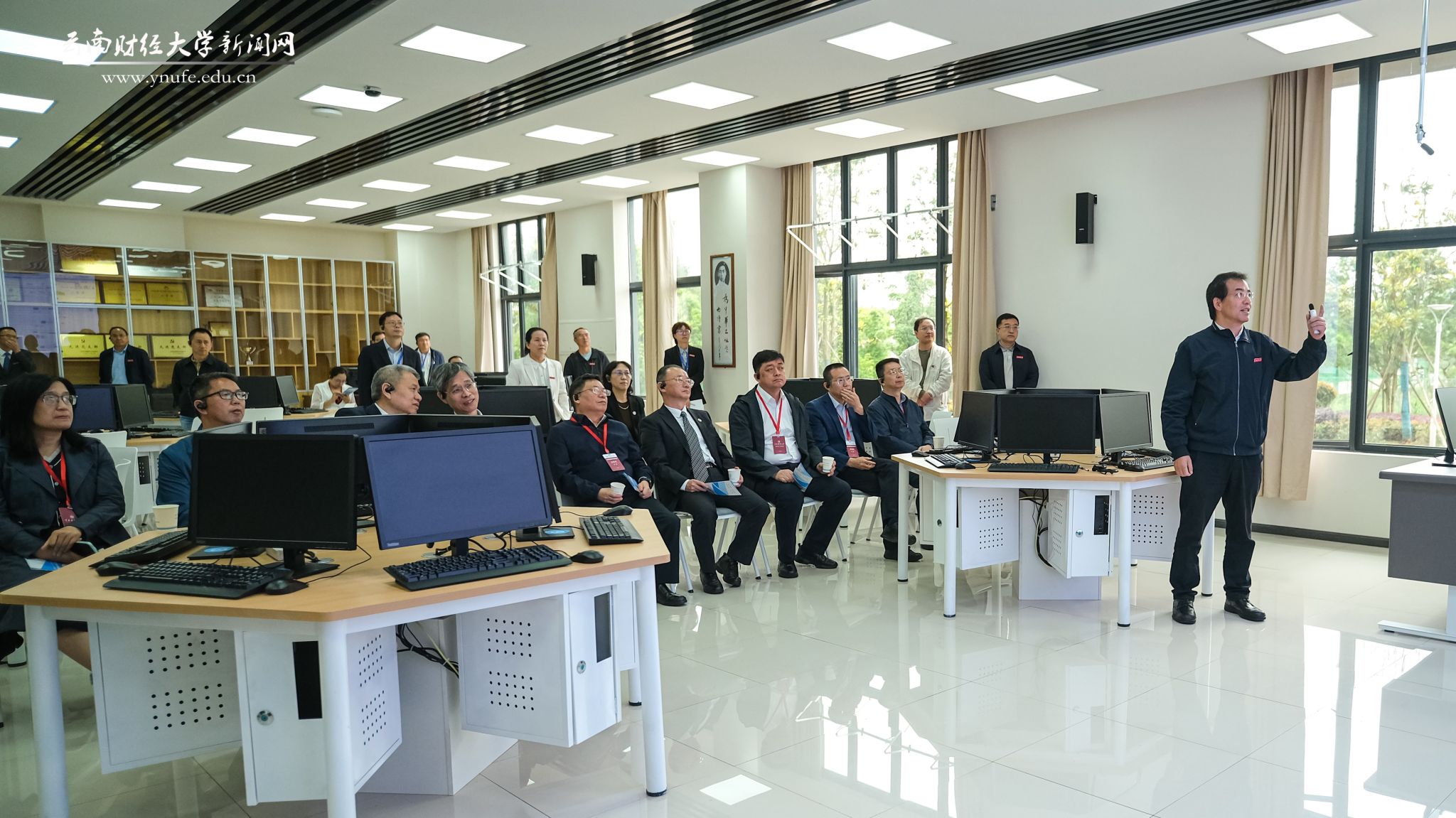From May 12th to June 6th, an expert panel appointed by the Ministry of Education conducted a comprehensive new-round evaluation of undergraduate education and teaching at Yunnan University of Finance and Economics (YUFE). The four-week assessment consisted of two stages: a remote online evaluation and an on-site visit.
The on-site evaluation panel was chaired by Zhao Dewu, former Party Secretary of Southwestern University of Finance and Economics. The vice-chair was Sun Fangcheng, former President of Chongqing Technology and Business University. The panel also included Li Guowu, Deputy Party Secretary of Xi'an University of Finance and Economics; Wu Jian, Vice President of Yunnan University; Wang Wei, Vice President of Harbin University of Commerce; and Li Zeping, Vice President of Qiannan Normal University for Nationalities, among other experts and administrators.

A Rigorous and Thorough Review
Over the three-week online phase and the one-week on-site inspection, the expert panel conducted a meticulous review. Their work included:
Observing 58 class sessions.
Reviewing 803 documents and files.
Holding 5 focus groups with 55 faculty members and 6 focus groups with 66 students.
Conducting 320 individual interviews.
Inspecting 2 off-campus employers and practical training bases.
The evaluation officially began on May 12th with a launch meeting. From May 12th to 30th, experts remotely reviewed YUFE’s self-assessment reports, previous evaluation reports and rectifications, and case studies. They also accessed talent cultivation plans, graduation theses, exam papers, and management documents, while conducting online class observations and interviews.



On June 4th, the on-site evaluation began with an introductory meeting. Panel chair Zhao Dewu explained that the on-site visit would focus on verifying issues identified during the online phase and examining key areas that could not be assessed remotely. He affirmed the panel's commitment to objectivity, fairness, and open communication to help the university enhance its educational quality. YUFE Party Secretary Chen Hong expressed sincere gratitude for the panel's hard work and pledged the university's full cooperation.

From June 4th to 5th, building on the online evaluation, the expert panel took a problem-oriented approach to carry out its verification work. Through methods such as on-site visits, in-person interviews and focus groups, document reviews, random class observations, and inspections of employers and practical training bases, the panel sought focused verification of issues that remained uncertain after the online review and conducted a comprehensive and objective evaluation of the university's undergraduate education and teaching work.





On the morning of June 6th, the panel convened a feedback meeting. Chair Zhao Dewu presented the group's overall findings, summarizing their impression of YUFE as a university that is "responsible in its mission, distinctive in its features, open and innovative, and united in its progress."
The panel praised YUFE's undergraduate education in six key areas:
1. Strengthened Party Leadership: Creating a collaborative, holistic "Three-All" education model (educating the whole person, in the whole process, in an all-round way).
2. Service to National and Regional Strategy: Building a "three-pronged, three-fold" talent cultivation system (academic, international, and vocational types, with a focus on digitalization, internationalization, and green development).
3. Proactive Internationalization: Developing a talent cultivation model of "import-integrate-innovate-export."
4. Talent-Driven Strategy: Achieving an overall improvement in the quality of the faculty.
5. Deepened Innovation and Entrepreneurship Education: Promoting high-quality, integrated experiential learning.
6. Continuous Quality Assurance: Advancing the effectiveness of the teaching quality assurance system.

The experts also provided targeted recommendations for improvement, addressing areas such as the development of the ideological and political education faculty, balancing foundational and specialty disciplines, optimizing the academic ecosystem and program layout, deepening teaching reforms, constructing high-level research and teaching platforms, expanding resources, and strengthening the quality assurance system.

Wang Yongquan, representing the Yunnan Provincial Department of Education, thanked the panel for their meticulous work. He urged YUFE to transform the panel's recommendations into concrete actions, emphasizing the need to strengthen its distinctive features, integrate AI into undergraduate education, and align its long-term planning with the evaluation outcomes.
In his concluding remarks, Secretary Chen Hong stated that the university sincerely and fully accepts the panel's feedback. He outlined a three-part commitment:
1. Full Acceptance: The university will use the panel's guidance to deepen educational reforms and ensure the centrality of undergraduate teaching.
2. Comprehensive Rectification: The university will immediately form a plan to address all issues, establishing clear tasks, timelines, and responsibilities to ensure every recommendation is implemented.
3. Continuous Improvement: Using the evaluation as a new starting point, YUFE will work to turn weaknesses into strengths and further enhance its unique characteristics, accelerating its journey to become a high-level regional university rooted in Yunnan, serving the nation, and oriented towards South and Southeast Asia.

The new round of the Ministry of Education's evaluation is designed to systematically elevate the quality of undergraduate education. YUFE will seize this opportunity, upholding its ethos of "Forever Advancing, First to Dare." Guided by the principle of "using evaluation to promote development, reform, management, and overall strength," the university will continue to innovate its undergraduate teaching and redouble its efforts to serve national strategies and regional economic development.
